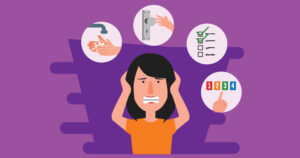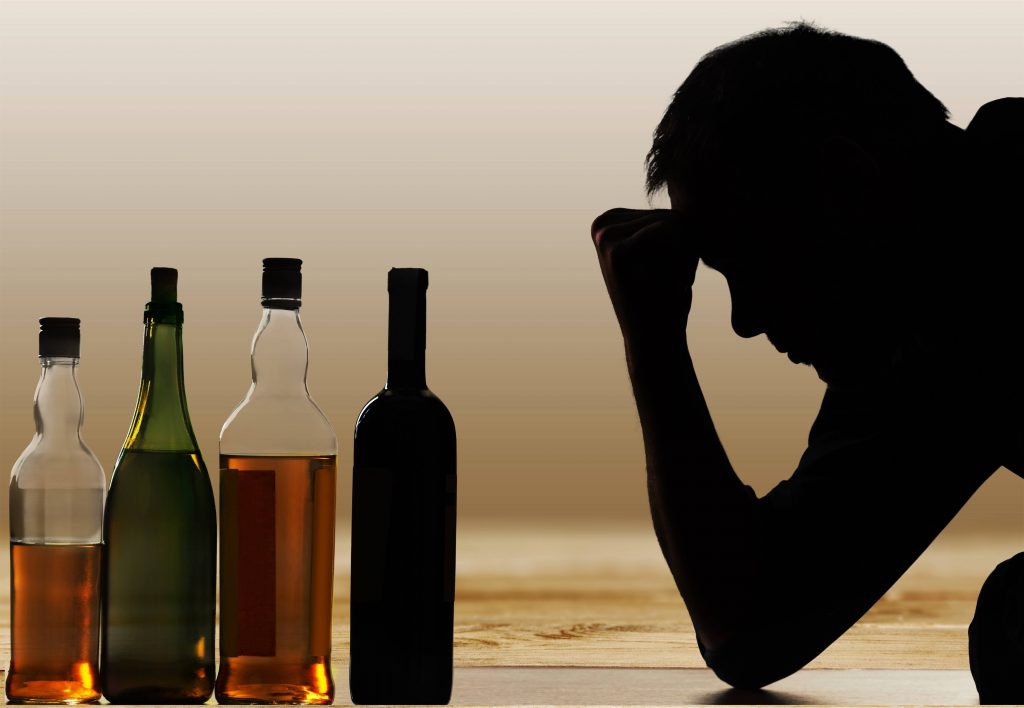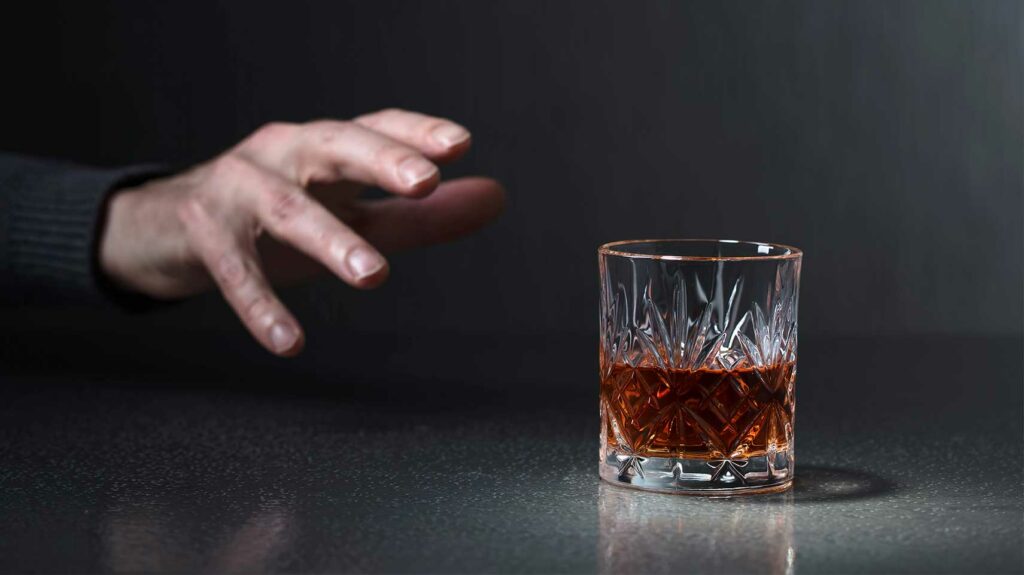OCD is a mental disorder characterized by uncontrollable, recurring, and often unreasonable thoughts, impulses, and/or behaviors. OCD can also be associated with alcohol use. This article provides information about OCD and how it relates to alcohol use. You will learn about why people develop OCD and the relationship of OCD with alcohol consumption. Additionally, this article covers some ways that you can overcome OCD and alcohol addiction.
Contents
What is OCD?
 Obsessive-compulsive disorder, or OCD, is a mental health condition that causes sufferers to experience intrusive and unwanted thoughts, as well as engage in repetitive behaviors. OCD can have a significant impact on a person’s life, making it difficult to work, go to school, or even leave the house. There are many different types of OCD, but some of the most common include:
Obsessive-compulsive disorder, or OCD, is a mental health condition that causes sufferers to experience intrusive and unwanted thoughts, as well as engage in repetitive behaviors. OCD can have a significant impact on a person’s life, making it difficult to work, go to school, or even leave the house. There are many different types of OCD, but some of the most common include:
- Checking compulsions – Repeatedly checking things like appliances, door locks, or taps to make sure they are turned off
- Counting compulsions – Having to count objects or perform certain actions a certain number of times
- Arranging compulsions – needing things to be arranged in a certain order or symmetry
- Washing and cleaning compulsions – Excessive handwashing, bathing, or cleaning
OCD is often treated with a combination of medication and therapy. If you think you might have OCD, it is important to see a mental health professional for an accurate diagnosis and treatment plan.
Relationship Between OCD and Alcohol Addiction

There is a strong relationship between OCD and alcohol. Many people with OCD turn to alcohol as a way to self-medicate and cope with their symptoms. Unfortunately, this only leads to further distress and problems. Alcohol can worsen the symptoms of OCD and make it more difficult to manage the disorder. What is the relationship between OCD and alcohol?
It can be difficult to understand the relationship between OCD and alcohol. That’s because—like many mental disorders—the symptoms of these two disorders don’t appear to have anything in common at first glance. However, in this case, obsessive thinking and an urge to drink alcohol are actually very similar. Although these feelings may seem very different, they are actually caused by the same thing. In each case, your brain is sending a message that something isn’t right. You feel like you need to take action or find some kind of relief from this feeling of distress. In some cases, you may even cycle through both anxiety and cravings for alcohol at the same time.
The second point for the relationship between OCD and alcohol can be seen when you look at cravings for alcohol and anxiety. These are two very similar issues that go hand in hand. In fact, the symptoms of anxiety can often lead to a person wanting to drink more than they normally would. This often occurs because they want to feel better or numb the feelings of anxiety that they are experiencing.
Impacts of OCD And Alcohol

There are many potential impacts of OCD and alcohol. For some people, OCD can lead to alcohol abuse or addiction. For others, alcohol may worsen OCD symptoms. In either case, the impact of OCD and alcohol can be significant.
OCD and alcohol can both lead to social isolation. People with OCD may avoid social situations because they fear they will not be able to control their compulsions. Similarly, people with alcoholism may avoid social situations because they fear they will drink too much. Both OCD and alcoholism can also lead to financial problems. Compulsions can be costly, and alcohol addiction can lead to job loss and financial ruin.
OCD and alcohol can also have a negative impact on physical health. People with OCD may engage in compulsive behaviors that injure themselves or damage their property. Alcoholism can lead to liver damage, heart disease, and other health problems.
Treatment of OCD And Alcohol Overuse

OCD and alcohol use disorder are both chronic and relapsing conditions that require treatment. While there are similarities between the two disorders, there are also important differences. This article will explore the treatment of OCD and alcohol use disorder.
Medications
There are many different types of medications that one can use to treat OCD and alcohol overuse. The most common type of medication used to treat OCD is a selective serotonin reuptake inhibitor (SSRI). SSRIs work by increasing the levels of serotonin in the brain. Other types of medications that have been shown to be effective in treating OCD include tricyclic antidepressants, anti-anxiety medications, and antipsychotic medications. It is important to work with a mental health professional to figure out which medication is right for you.
Therapy
There are many different types of therapy that can be effective in treating OCD and alcohol overuse. Some people may benefit from cognitive behavioral therapy, which can help to change the negative thought patterns that contribute to OCD and alcohol overuse. Others may find relief through exposure therapy, which involves gradually exposing oneself to the things that trigger OCD or alcohol cravings. Still, others may find success with medication, either through taking antidepressants or antianxiety medications.
Self-Care
The most important part of treating OCD and alcohol overuse is self-care. This means taking care of yourself emotionally and physically. It’s important to find healthy ways to cope with your stress and anxiety. This may include exercise, relaxation techniques, and support groups. You also need to get enough sleep and eat a healthy diet.
How To Overcome OCD And Alcohol Addiction?

If you or someone you know suffers from OCD, you may be wondering how to overcome OCD and alcohol. While it may seem like a difficult task, it is possible to overcome OCD and live a healthy, balanced life. Here are some tips on how to overcome OCD and other condition:
1. Get professional help: One of the most important things you can do if you suffer from OCD is to get professional help. A therapist can help you understand your OCD and develop coping mechanisms to deal with your symptoms. If you’re struggling to overcome OCD on your own, don’t hesitate to seek professional help.
2. Avoid triggers: Another important step in overcoming OCD is to avoid triggers. If you know that certain things trigger your OCD symptoms, try to avoid them as much as possible. For example, if you tend to obsess over dirt and germs, try to avoid places that are likely to be dirty or full of germs.
3. Be patient: Overcoming OCD can be a long and difficult process. It’s important to be patient with yourself and understand that it may take time to see results. Don’t get discouraged if you don’t see immediate improvement; keep working at it and eventually, you will see progress.
4. Get support: If you are afraid to seek professional help, it’s a good idea to get support from family and friends. Try to avoid falling into the trap of feeling ashamed and discouraged about your OCD; remember that you have many people who love and support you and are willing to help you with this condition.
5. Don’t be hard on yourself: One of the biggest mistakes people with OCD make is being too hard on themselves and thinking negatively about their situation. It’s important for you to understand that OCD is not your fault; it’s an illness that anyone can manage with proper treatment.
Conclusion
It’s important to remember that OCD and addiction are both serious mental health disorders that can have a profound impact on your life. If you think you might be struggling with either of these conditions, it’s important to reach out for help. There are many resources available to those struggling with OCD or addiction, and getting the right help can make all the difference.
If you or someone you know is looking for affordable, effective, and confidential OCD or alcohol addiction treatment, you can consider contacting Therapy Mantra. We have a team of expert therapists who can help you to overcome your OCD and live a life that is free from anxiety and fear. Contact us today to book an online therapy session or download our free OCD treatment app on Android or iOS for more information.


